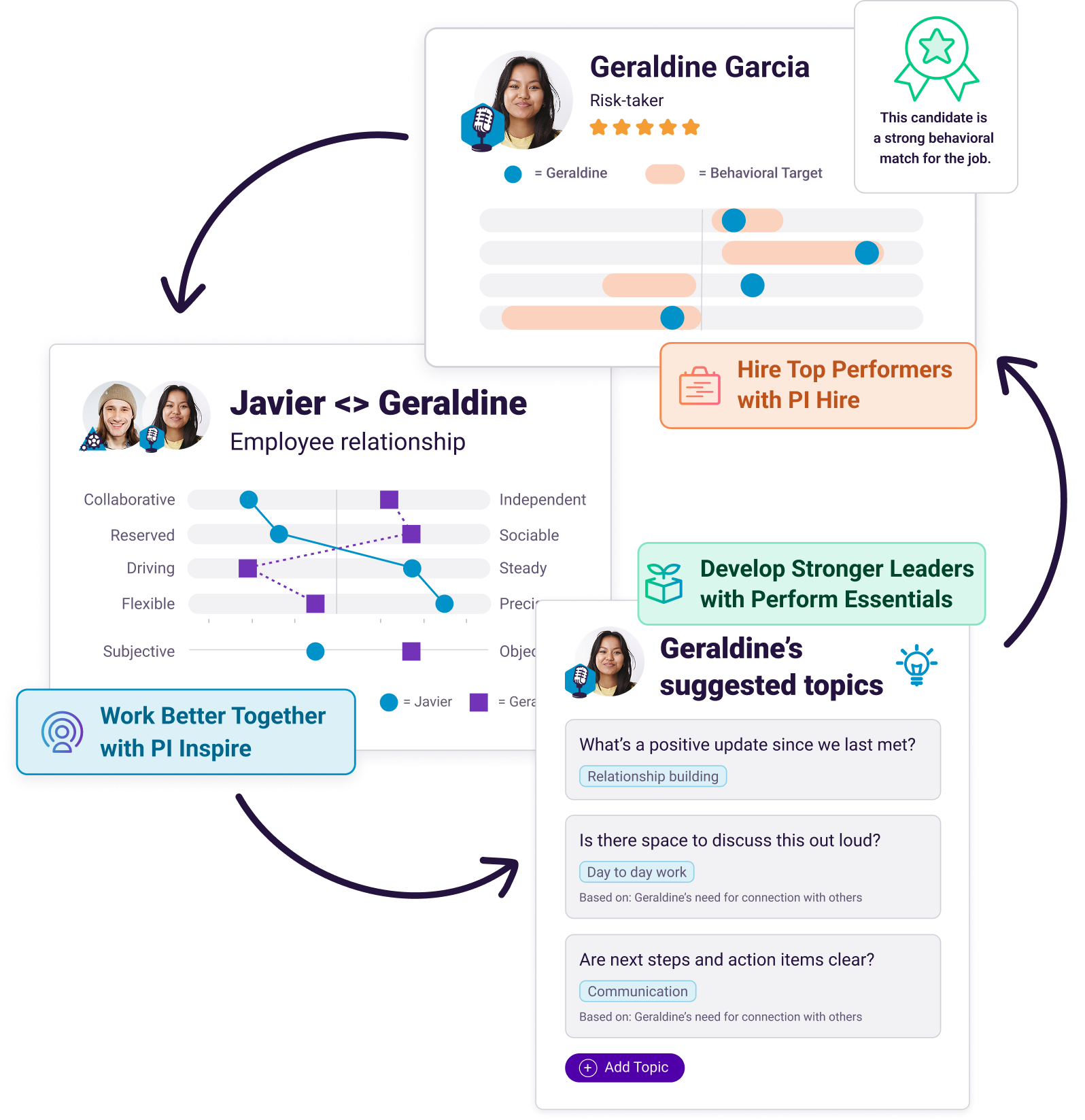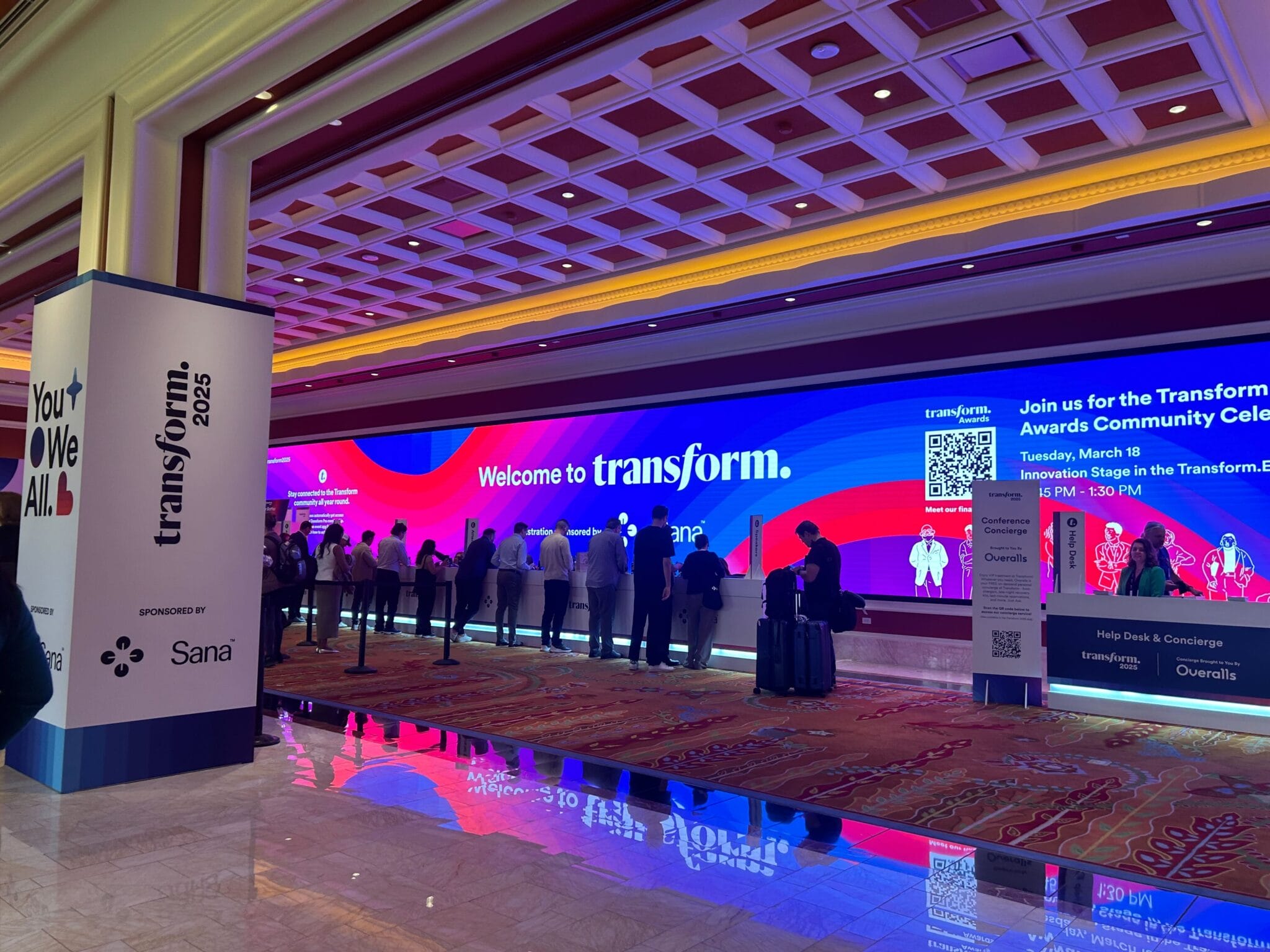It’s hard out there for a hiring manager. People have left the workforce at record rates over the past year, across all industries and roles, and they’re not necessarily returning.
Good candidates are often scarce. Whether you’re hiring an HR manager or a home appraiser, you simply can’t afford mishires.
Fortunately, there are ways to narrow the gap. Namely, behavioral data can help you identify the right fit for a role. And when you know what behaviors lead to success in a role, you can hire with confidence.
But you’ll need to ask the right questions to find the right person.
We’ve got you covered. Wondering how to hire a top-performing human resources manager? Start with questions that get right at the behaviors and competencies the role requires.
Perhaps your behavioral target indicates this person needs to be good at initiating contact, documenting communication. They should also act with integrity and support others. Here are five questions you might ask to hone in on this target candidate:
5 interview questions to ask when hiring for an HR manager
- How do you go about recognizing others for a job well done?
- When you’re assigned to a new manager, how do you create trust and communication?
- What’s your approach to reviewing new materials that outline processes or agreements that will affect multiple team members?
- What would you do in a situation where a coworker told you they felt threatened by another coworker?
- Tell me about a time your communication style didn’t match with someone else you were working with. What did you do?
These behavioral interview questions can quickly confirm or deny your hunches. They’re designed to help answer a crucial question: Is this person who we think they are?
And since you’ve already identified your job target, a simple “yes” can dramatically reduce your time to hire.
The anatomy of a behavioral interview question
Let’s dissect each of the questions we’ve suggested. None of these are random. They’re all crafted with a clear purpose – to find the right HR Manager for your specific team.
How do you go about recognizing others for a job well done?
There may not be a right answer here. You might be asking this question to confirm the candidate’s behavioral tendencies, or simply to see how they communicate. What matters is that, as a member of the human resources department and a manager of people, they have an approach for recognition. It’s something they’ll do regularly.
When you’re assigned to a new manager, how do you create trust and communication?
Maybe the candidate doesn’t have a ton of experience with this scenario. That’s alright. You’re looking for evidence that they understand how crucial trust and communication are to any manager-report relationship. Their answer will offer insight into not only how they like to be managed, but the self-awareness they apply to their own managerial duties.
What’s your approach to reviewing new materials that outline processes or agreements that will affect multiple team members?
Here’s a two-pronged query. As a member of the HR department, this person will need to not only understand company materials and processes, but sometimes create them. So you’re getting insight into their work style, but you’re also tapping into their concern for others. In answering this question, do they take into account the behavioral patterns of their team members? Are they empathetic and compassionate? Or is their process their process?
What would you do in a situation where a coworker told you they felt threatened by another coworker?
This question’s application is straightforward. It’s an unfortunate element of any HR team member’s job. As an HR manager, the stakes may be even higher. They candidate might be approaching this scenario from multiple angles: as an objective evaluator, a voice of the company, or in support of one of their own team members. You’ll surely want a measured response, but the more perspectives the candidate can draw from in providing their answer, the more promising they’ll probably be.
Tell me about a time your communication style didn’t match with someone else you were working with. What did you do?
Like any manager, a leader of an HR team has to account for different personalities. You want to be assured they can lead with awareness – not just of their own strongest drives, but those of their colleagues and reports. You want their answer here to confirm your hopes about them. If they can summon an example of how they’ve accommodated a person’s communication behaviors, you can feel confident they’ll do it again – to the benefit of your own HR department and entire organization.
How PI can help
No two interviews should be the same. Each candidate comes with a unique behavioral makeup, and if you’re doing your homework, those behaviors should align with the target you’ve established for the role.
PI Hire makes each step easier. Buoyed by scientifically validated assessments, our software gives you clarity in the hiring process.
Know the right fit for any role, and then nail that hire by tailoring your interview questions accordingly.








